Like many situations, change is always challenging. Sometimes however the change we comes at great cost. Sometimes the change sought is not worth the price to be paid.
Mid ’79 in our potential world war III as presented by The Next War, history has a strange way of repeating it self…or not. Tensions build in Warsaw Pact nations.
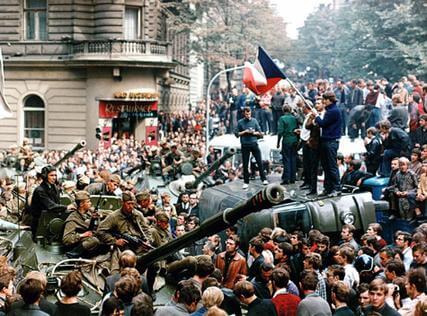
The uprising was initially peaceful, Soviet and Warsaw Pact partner nations engaged the crowds and were charmed by the love. The desire for peace. The desire for a new open form of Socialism.
This would not last long. It could not be allowed to. The line between Communism, Socialism and Western democracy was never to be blurred. Nor could this new way be allowed to spread. Already Polish intelligence sources had intercepted heightened activity in Warsaw by activists, no doubt sponsored and supported by the CIA.
Two Soviet Divisions, the 20th and the 38th were dispatched and are now permanently stationed in Poland to suppress further reactionary forces.
Poland – 2200 17th of June 1978
Bishop of Krakow Karol Wojtyla took an uncompromising stand against the Communist regime, he was heard on the radio preaching calm peaceful resistance to political interference by foreign governments and stated his opposition to war. His comments built upon a back drop of the ’76 oil shock and policy mandated price increases by Edward Gierek, First Secretary of Poland, forced people to the streets in protest and strikes ensued across the country. Politicians sat up and took notice.
Talk spread of a reluctant Polish military General Staff. The Cabinet was swayed by them to fight a restrained war should it come to that, against an enemy that seemed more like a friend as every day passed.
Back in Czechoslovakia, once the Prime Minister, Dubcek’s arrest was made public the crowds turned ugly rapidly. Fear grew in the hearts of the public. No one wanted a return bleak economic woes and lack of personal expression. The WP forces fed that fear with a crack down. Escalation led to reprisal. Reprisal led to more ambush tactics in the streets of Prague.
0500 24th August 1978
As the UAZ rounded the corner during the third night of curfew, the flash of muzzles from several directions caught the driver unawares. His lifeless form slumped over the drivers wheel careened into a a wall and burst into flames killing all inside. The next vehicle thru the intersection slowed, and wantonly opened fire into buildings. 73mm Grom rounds chewed into building exteriors, spread thru interior walls and churned sleeping flesh.
The PKT machine-gun added to the carnage. More vehicles troops and vehicles arrived. Pouring into buildings, they shot one and all. As fear spread so too did the flames from burst gas lines. Buildings collapsed. The troops drove away.
Then the KGB arrived.
Ambulance and Fire services were not permitted to enter the scene. By midday the fire had burned out. The last rays of hope for the Czech and Slovak peoples simmered in their eyes, and soon extinguished.
Dissent was crushed.
[Game situation]
Poland rolls up reluctant war entry: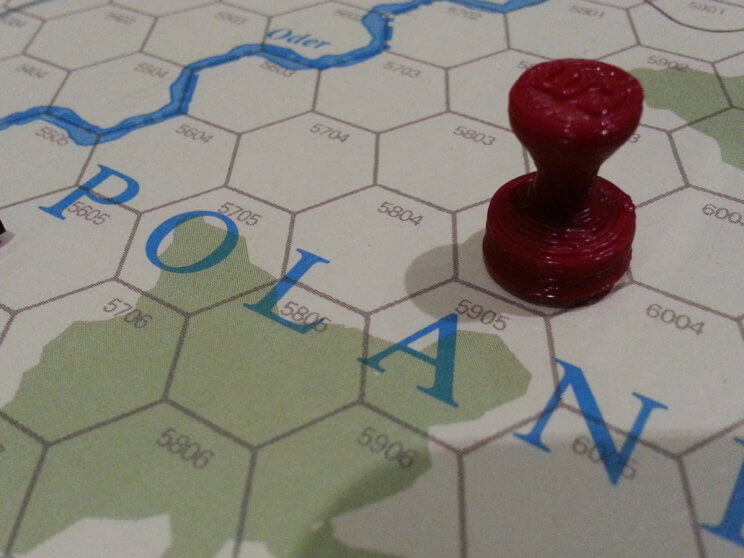
Having the following impact – limits access to North Western Europe, removes 10 air units from play, limits flights into countries and no Helos. Certain divisional scale reinforcements will be required to remain inside Polands borders. Release occurs if attacked and or if WP units cross the Rhine.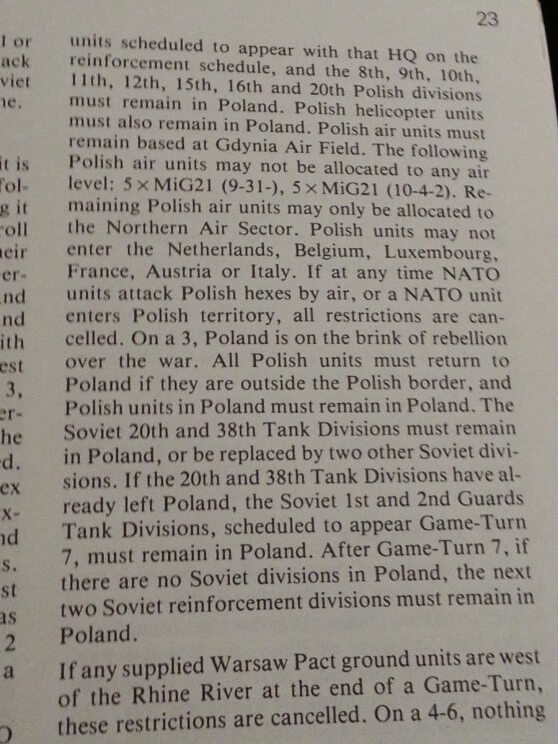
For the Czech it simply means a delay in their entry.
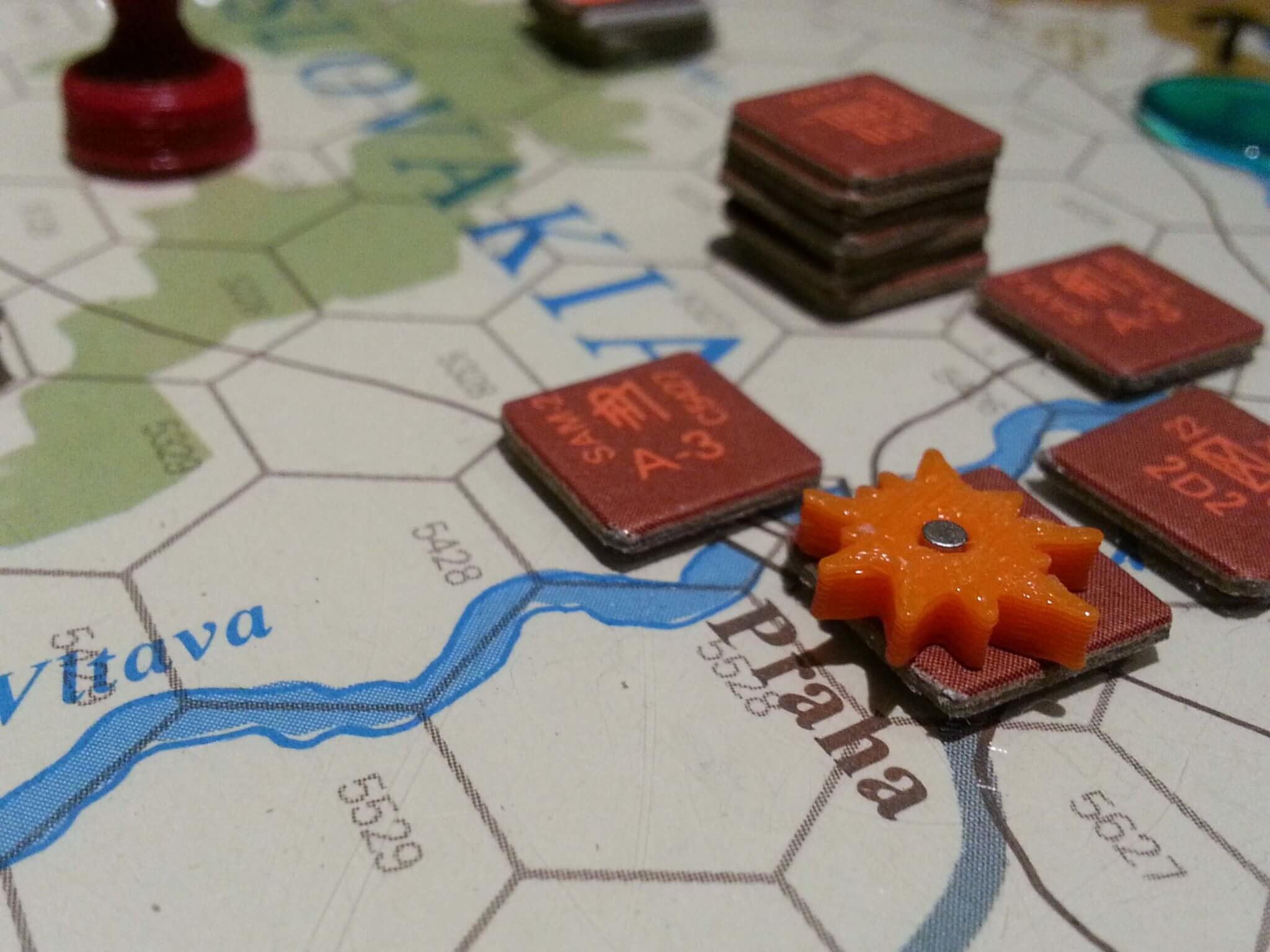
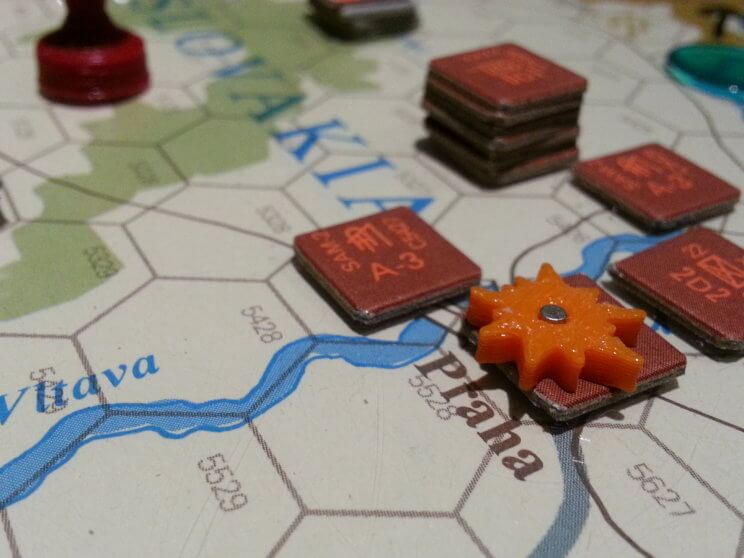
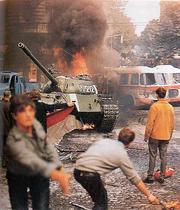
Nice history
For some reason, Poland always betrays the Marxist-Leninist Cause.
Great build-up of the events!